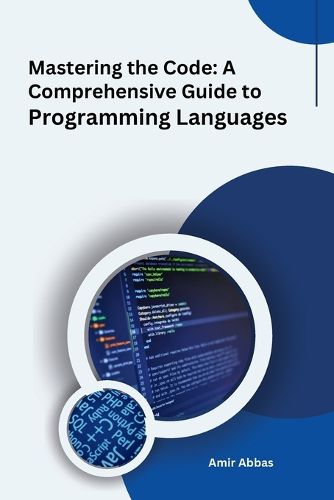Readings Newsletter
Become a Readings Member to make your shopping experience even easier.
Sign in or sign up for free!
You’re not far away from qualifying for FREE standard shipping within Australia
You’ve qualified for FREE standard shipping within Australia
The cart is loading…






This title is printed to order. This book may have been self-published. If so, we cannot guarantee the quality of the content. In the main most books will have gone through the editing process however some may not. We therefore suggest that you be aware of this before ordering this book. If in doubt check either the author or publisher’s details as we are unable to accept any returns unless they are faulty. Please contact us if you have any questions.
The digital world would not exist without programming languages, which allow humans to interact with computers and give them instructions on how to carry out certain activities. When it comes to connecting human thinking with machine execution, these languages are indispensable. Programming languages are more than just a set of rules for creating computer programs; they have a profound impact on how we use technology and how the software that runs our modern lives is created. Programming Languages: A Comprehensive Overview1. A programming language, in its most basic form, is a collection of standards and guidelines for creating software. It gives programmers a methodical and organized manner to tell computers what to do. After being written in a particular programming language, these instructions are transformed into machine code that the computer may subsequently follow. The ability to write code that a person can understand is a hallmark of computer languages. The binary instructions that make up machine code are difficult for people to comprehend; nevertheless, programming languages make it possible to compose code using more human-friendly words, symbols, and structures. Complex thoughts can be more easily translated into executable instructions with the help of this abstraction.
$9.00 standard shipping within Australia
FREE standard shipping within Australia for orders over $100.00
Express & International shipping calculated at checkout
This title is printed to order. This book may have been self-published. If so, we cannot guarantee the quality of the content. In the main most books will have gone through the editing process however some may not. We therefore suggest that you be aware of this before ordering this book. If in doubt check either the author or publisher’s details as we are unable to accept any returns unless they are faulty. Please contact us if you have any questions.
The digital world would not exist without programming languages, which allow humans to interact with computers and give them instructions on how to carry out certain activities. When it comes to connecting human thinking with machine execution, these languages are indispensable. Programming languages are more than just a set of rules for creating computer programs; they have a profound impact on how we use technology and how the software that runs our modern lives is created. Programming Languages: A Comprehensive Overview1. A programming language, in its most basic form, is a collection of standards and guidelines for creating software. It gives programmers a methodical and organized manner to tell computers what to do. After being written in a particular programming language, these instructions are transformed into machine code that the computer may subsequently follow. The ability to write code that a person can understand is a hallmark of computer languages. The binary instructions that make up machine code are difficult for people to comprehend; nevertheless, programming languages make it possible to compose code using more human-friendly words, symbols, and structures. Complex thoughts can be more easily translated into executable instructions with the help of this abstraction.